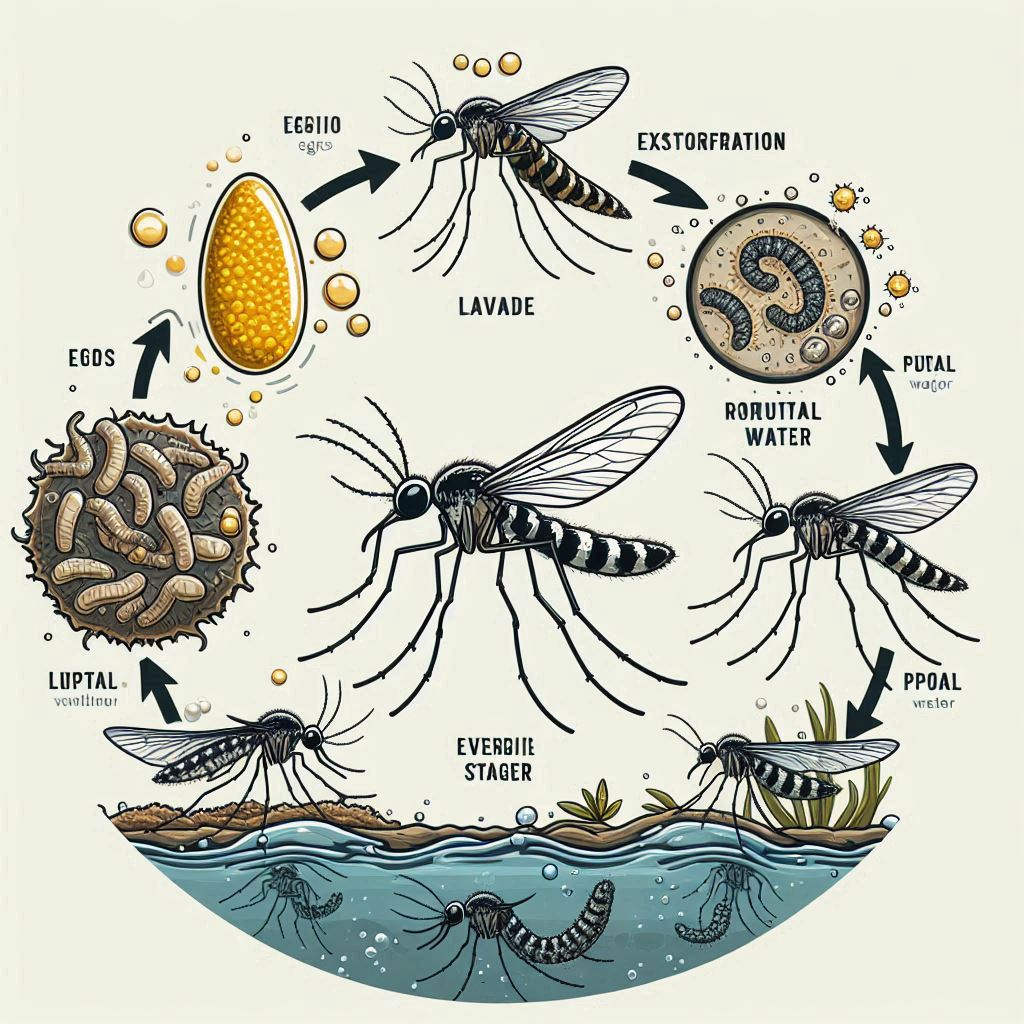When most people think of dengue fever, they associate it with hot, humid conditions typical of monsoon and tropical climates. However, recent patterns in climate change and urbanization have led to an intriguing and often alarming phenomenon: the presence of dengue fever in winter months. Let’s explore this unexpected occurrence, its implications, and what you can do to protect yourself and your community.
The Lifecycle of the Dengue Virus
Dengue fever is transmitted primarily by the Aedes aegypti mosquito, which thrives in warm, tropical climates. Traditionally, the virus is most prevalent during the rainy season when standing water creates ideal breeding grounds for these mosquitoes. However, several factors can contribute to the persistence of dengue in winter:

- Temperature Fluctuations: While the cold may slow down mosquito activity, it doesn’t necessarily eliminate it. Many regions experience mild winter temperatures that can still support mosquito breeding. Additionally, urban heat islands—areas that are significantly warmer than their rural surroundings—can create hospitable environments for mosquitoes year-round.
- Climate Change: Changes in global temperatures have led to altered weather patterns, including unexpected warm spells during winter months. Such fluctuations can create favorable conditions for mosquito breeding and, by extension, the spread of dengue.
- Human Behavior: Increased travel and the movement of people to urban areas can facilitate the spread of not only the dengue virus but also its carriers. For instance, returning travelers from endemic areas during winter months can bring the virus to regions that typically don’t experience seasonal outbreaks.
Symptoms of Dengue Fever
Recognizing the symptoms of dengue is crucial for early diagnosis and treatment. Common symptoms include:
- High fever
- Severe headaches
- Pain behind the eyes
- Joint and muscle pain
- Rash
- Minor bleeding (such as nosebleeds or bleeding from the gums)
In some cases, severe dengue can occur, which can be life-threatening and requires immediate medical attention.
Organic Remedies for Managing Dengue Symptoms
While there is no specific cure for dengue, there are several organic remedies that may help alleviate symptoms or support recovery when integrated with proper medical care. Here are some organic remedies you might consider:
- Papaya Leaf Juice: Some studies suggest that papaya leaf juice may help increase platelet count and provide relief from symptoms. It is believed to enhance the body’s immune response.
- Neem Leaves: Neem possesses antiviral properties. Drinking neem leaf tea may help reduce symptoms and support recovery.
- Ginger Tea: Ginger has anti-inflammatory properties and can help relieve fever and body aches. Boiling ginger slices in water to make tea can be soothing.
- Turmeric: Known for its anti-inflammatory and antioxidant properties, turmeric can be added to food or consumed as a warm drink with milk.
- Coconut Water: Staying hydrated is crucial during dengue. Coconut water is rich in electrolytes and can help keep you hydrated, aiding your recovery.
- Fenugreek Seeds: Soaking fenugreek seeds in water overnight and consuming them in the morning may help boost immunity and improve symptoms.
- Garlic: Garlic is known for its health benefits and may support immune function. Including it in your diet can be advantageous.
- Lemon Juice: Rich in vitamin C, lemon juice may boost your immune system and help manage symptoms.
- Herbal Teas: Herbal teas made from ingredients like chamomile, peppermint, or lemongrass can help soothe the body and promote relaxation.
Be sure to consult with a healthcare professional before using any organic remedies, especially in the context of a viral illness like dengue. These remedies should not replace conventional medical treatment, particularly in severe cases.
https://fuelforlife365.com/blog/
Prevention Strategies
Given the unexpected nature of dengue in winter, preventative measures become all the more essential. Here are some steps you can take to protect yourself and your community:
- Eliminate Breeding Grounds: Mosquitoes reproduce in stagnant water. It’s important to routinely inspect your surroundings for areas where water may collect, including flower pots, buckets, and gutters. Be sure to empty these locations to eliminate potential breeding sites.
- Use Mosquito Repellents: When spending time outdoors, especially during early morning and late afternoon when Aedes mosquitoes are most active, use an EPA-approved insect repellent on exposed skin and clothing.
- Wear Protective Clothing: Opt for long-sleeved shirts and long pants, and consider treating your clothes with permethrin for added protection.
- Community Awareness: Engage your community in discussions about mosquito control and dengue prevention. Educational campaigns can help spread awareness and encourage action from local authorities.
- Stay Informed: Monitor local health advisories and weather patterns. Being aware of any reported dengue cases in your area can help you stay one step ahead.
Conclusion
The emergence of dengue fever during winter months is a stark reminder of how climate change and human behavior can reshuffle the epidemiology of infectious diseases. By understanding how and why dengue occurs in cooler seasons, we can better prepare and respond to this growing public health challenge. Take proactive measures to protect yourself, and encourage your community to do the same. Together, we can work toward reducing the incidence of dengue, regardless of the season.
Discover more from fuel for life
Subscribe to get the latest posts sent to your email.




